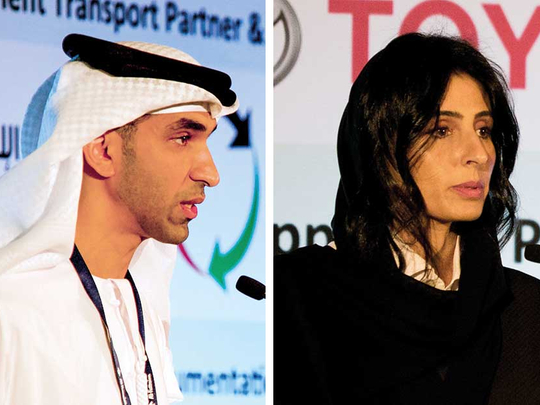
Abu Dhabi: The majority of emissions being produced in the UAE can be traced back to the country’s energy sector, making up 74 per cent of released emissions, said an official during the first day of the Clean Air Forum held in Abu Dhabi on Sunday.
Organised by the Environment Agency – Abu Dhabi (EAD), and the Department of Economic Development – Abu Dhabi, the forum — the first of its kind in the region — reviewed the state of air quality in the UAE as well as the latest policies and regulations to help keep pollution levels down.
“In 2012 and 2015 the EAD conducted an air emissions inventory, which indicated the major sources of emission — 74 per cent of our emissions comes from the energy sector… [this] includes electricity and water production, manufacturing, and transportation,” said Razan Khalifa Al Mubarak, secretary general, EAD, highlighting the organisation’s findings.
Al Mubarak added that the rest of emissions came from industries (16.9 per cent), waste (7 per cent), and agriculture (1.7 per cent).
Al Mubarak said the EAD had 20 air quality monitoring stations that were constantly checking pollution levels in the country.
“The EAD manages 20 ambient air quality monitoring stations that are electronically linked with networks managed by a number of regulatory proponents.
“[These stations are] providing us with a holistic coverage of not only Abu Dhabi but also the UAE… This monitoring information is made available to the public and through our air quality portal in real time… accessible [and] transparent to everyone,” she added.
Al Mubarak said that a number of policies had been put in place for reducing emissions, but emphasised that personal habits would also play a large role in helping mitigate the situation.
“Whilst our air quality is good, we cannot and will not take it for granted. As the population of Abu Dhabi increases and the UAE economy grows, we need to be ahead in terms of managing air quality… As citizens and residents we need to be open to changing our own behaviour and especially with our choices when it comes to transportation,” she said.
Dr Thani Ahmad Al Zeyoudi, Minister of Climate Change and Environment, also called for a proactive rather than reactionary approach to combating air pollution, citing the UAE’s plans for a green economy.
“Focusing on only controlling the emissions may not be the best approach to tackling pollution [and] may not lead to a reduction [in emissions].
“The UAE green agenda is focused on developing green industries [such as] green energy buildings [and] green cities.
“Our estimates indicate these efforts will lead to a 4 to 5.5 per cent growth in GDP, and the creation of 160,000 jobs by 2030,” he added.
“This should contribute to mitigating greenhouse gas emissions,” he said.
For his part, Khalifa Salem Al Mansouri, Undersecretary of the Department of Economic Development – Abu Dhabi, said that improvements were being made to reduce the level of emissions from the industrial sector.
“In line with UAE Vision 2021, we are collaborating closely with strategic government and private sector partners… to improve the performance of the industrial sector and reduce the level and impact of air pollutants through legislation, regulations and policies.”












